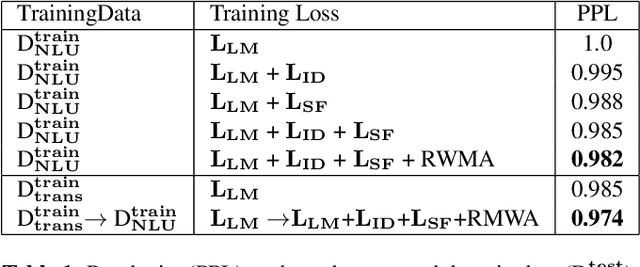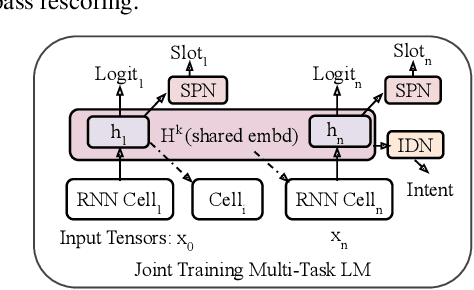Multi-task Language Modeling for Improving Speech Recognition of Rare Words
Paper and Code
Nov 25, 2020



End-to-end automatic speech recognition (ASR) systems are increasingly popular due to their relative architectural simplicity and competitive performance. However, even though the average accuracy of these systems may be high, the performance on rare content words often lags behind hybrid ASR systems. To address this problem, second-pass rescoring is often applied. In this paper, we propose a second-pass system with multi-task learning, utilizing semantic targets (such as intent and slot prediction) to improve speech recognition performance. We show that our rescoring model with trained with these additional tasks outperforms the baseline rescoring model, trained with only the language modeling task, by 1.4% on a general test and by 2.6% on a rare word test set in term of word-error-rate relative (WERR).
 Add to Chrome
Add to Chrome Add to Firefox
Add to Firefox Add to Edge
Add to Edge